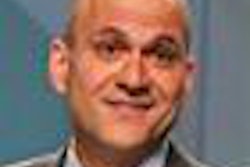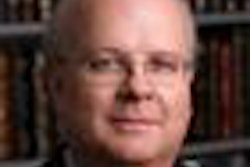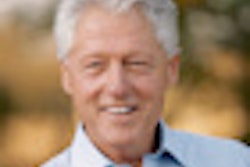Dear AuntMinnie Member,
In what is mostly good news for PET advocates, the U.S. Centers for Medicare and Medicaid Services (CMS) this week proposed loosening its rules on reimbursement for FDG-PET studies of solid tumors, saying that payments for follow-up scans should be made without patient data having to be reported to a national data registry.
On March 13, CMS issued a decision memo proposing to remove its coverage with evidence development (CED) requirement for follow-up FDG-PET studies of most clinical indications. The requirement had been in place since 2006 and required providers to report data from scans to the National Oncologic PET Registry while CMS tried to figure out how to handle PET reimbursement.
CMS removed the data reporting requirement in 2009 for PET scans to develop an initial treatment strategy for patients, but the agency maintained the requirement for follow-up studies. This week's news means that the reimbursement process may be less cumbersome for most PET exams ... with the exception of one (important) clinical indication. Find out which one by clicking here, or visit our Molecular Imaging Digital Community at molecular.auntminnie.com.
Mostashari on data's value
Our coverage of last week's Healthcare Information and Management Systems Society show wraps up with an article on the final keynote address by Dr. Farzad Mostashari, national coordinator for health IT within the U.S. Office of the National Coordinator.
In his talk, Dr. Mostashari discussed the potential of the intelligent use of data to help fix the ailing U.S. healthcare system, which is requiring the country to spend close to 18% of its gross domestic product on healthcare -- far in excess of other developed economies. The collection of data made possible by today's healthcare IT systems provides the ability to analyze trends with a power and speed not possible with paper-based systems, he said.
Dr. Mostashari also issued a passionate defense of meaningful use, the Obama administration's program designed to stimulate the economy while also improving healthcare quality. The program has come under fire by some who claim that it's been a $12 billion boondoggle with little to show for it, but Dr. Mostashari believes that the true value of meaningful use is only beginning to be evident.
Read more by clicking here, or visit the Healthcare IT Digital Community at healthcareit.auntminnie.com.
Good luck on Match Day
Tonight, youngsters around the U.S. will sleep fitfully in nervous anticipation of what's to come tomorrow. No, it's not Christmas, but rather Match Day, when medical students will find out the academic programs to which they'll be assigned to complete their training.
Match Day is the culmination of a complex process in which medical students interview with programs, and both parties create rank-order lists of their preferences. Students are matched to programs through a complex software algorithm used by the National Resident Matching Program (NRMP); learn more in this article in our Residents Digital Community.
Match Day results will be released tomorrow at 1 p.m. Eastern and can be viewed on NRMP's website. Good luck, everyone -- we hope you get the program of your dreams!



















